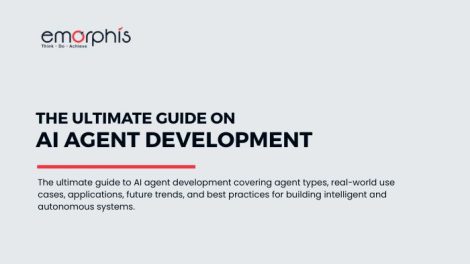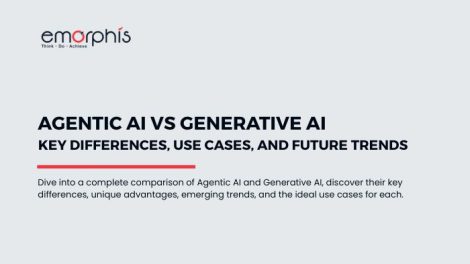Introduction
In the dynamic landscape of the financial industry, Artificial Intelligence (AI) has emerged as a transformative force, reshaping the way financial institutions operate and deliver services. As we delve into the intersection of technology and finance, it becomes evident that AI's impact on Fintech is not merely a trend but a revolution that is here to stay. According to Forbes, a leading source of business insights, the global AI in the Fintech market is projected to reach a staggering $26.67 billion by 2026. This robust adoption underscores the industry's recognition of AI's potential to enhance efficiency, reduce costs, and revolutionize customer experiences.
According to Deloitte's findings, fintech startups have secured substantial funding, signaling a significant infusion of capital that is poised to catalyze further growth within the sector. In fact, this influx of funding is anticipated to play a pivotal role in expanding the reach and impact of fintech firms.
Furthermore, read this article as we explore the benefits, use cases, and challenges associated with the integration of AI in the fintech sector.
AI in Fintech is a dynamic field that involves leveraging advanced algorithms and machine learning models to enhance also, automate financial processes. The primary goal is to improve efficiency, accuracy, also decision-making in financial services.
Let's delve into the key components of AI in Fintech and its overarching benefits.
Benefits of AI in Fintech
1. Enhanced Efficiency and Automation
One of the primary advantages of incorporating AI in Fintech is the significant boost in efficiency through automation. AI-powered systems can handle repetitive and time-consuming tasks, such as data entry, fraud detection, and customer service, allowing financial institutions to streamline their operations and allocate resources more strategically.
2. Improved Customer Experience
AI enables a more personalized and seamless customer experience in the financial industry. In fact, through the analysis of vast amounts of customer data, AI algorithms can tailor services, recommend personalized financial products, and provide real-time insights. This not only elevates customer satisfaction but also nurtures a sense of loyalty among customers.
3. Risk Management and Fraud Detection
AI plays a crucial role in enhancing risk management also fraud detection in the financial sector. Furthermore, machine learning algorithms can analyze historical data patterns to identify potential risks, detect anomalies, and mitigate fraudulent activities in real time. This proactive approach also helps financial institutions stay ahead of emerging threats.
4. Data-driven Decision Making
The integration of AI allows financial institutions to make more informed and in fact data-driven decisions. AI algorithms can analyze complex data sets, identify trends, and further provide actionable insights that also, empower decision-makers. As a matter of fact, this data-driven decision-making process contributes to better risk assessment and investment strategies.
5. Cost Reduction
By automating routine tasks and improving operational efficiency, moreover, AI in Fintech contributes to significant cost reduction for financial institutions. In fact, this cost-effectiveness allows organizations to allocate resources more efficiently and invest in innovative solutions, ultimately fostering a more competitive and dynamic industry.
Get in touch for Fintech app development.
Use Cases of AI in Fintech
a. Algorithmic Trading
AI-driven algorithmic trading has become a cornerstone of the financial industry. In fact, machine learning models analyze market trends, news sentiment, and historical data to execute trades at optimal times. This not only improves trading efficiency but also enables faster and more accurate decision-making.

b. Credit Scoring and Underwriting
AI has revolutionized the credit scoring and underwriting processes. Traditional methods are often limited in assessing creditworthiness, but AI algorithms can analyze a vast array of data points, including non-traditional sources like social media and online behavior. In fact, this results in more accurate risk assessments and allows financial institutions to provide loans to a broader range of customers.
c. Chatbots and Virtual Assistants
AI Chatbots and virtual assistants fueled by AI are revolutionizing how customers engage with financial services. In fact, these intelligent systems can handle customer inquiries, provide account information, and even assist in financial planning. Furthermore, the 24/7 availability of virtual assistants enhances customer service frees up human agents to focus on more complex tasks.
d. Fraud Detection and Prevention
AI is a potent tool in the ongoing battle against fraud. Advanced machine learning models can analyze transaction patterns, detect anomalies, also flag potentially fraudulent activities in real time. In fact, this proactive approach is crucial in safeguarding the financial ecosystem from evolving cyber threats.
e. Personalized Financial Advice
AI-driven robo-advisors are gaining popularity for providing personalized financial advice and investment strategies. In fact, these platforms leverage algorithms to assess individual financial goals, risk tolerance, and market conditions to offer tailored investment recommendations. Furthermore, this democratizes access to financial advice, making it more accessible to a broader audience.
Find the details of a fintech app development company.
Overcoming Challenges: Strategies for Responsible AI Integration in Fintech
While the challenges associated with AI in Fintech are significant, proactive strategies can be employed to address these issues responsibly. Here, we explore key approaches to overcoming hurdles and ensuring the ethical and effective integration of AI in the financial sector.
i) Data Privacy and Security Measures
To address data privacy and security concerns, financial institutions must implement robust measures to safeguard customer information. This includes employing encryption protocols, multi-factor authentication, and secure data storage solutions. Regular audits and compliance checks should be conducted to ensure that AI systems adhere to industry standards and regulations.
Additionally, financial organizations can adopt privacy-preserving techniques such as federated learning, which allows models to be trained across decentralized devices without sharing raw data. By prioritizing data security and privacy, the financial industry can build trust with customers and regulatory bodies.
ii) Regulatory Compliance and Ethical AI Practices
Navigating regulatory compliance challenges requires a proactive approach. Financial institutions should collaborate closely with regulatory bodies to establish clear guidelines for the responsible use of AI in Fintech. This collaboration ensures that AI systems adhere to existing regulations and comply with evolving legal frameworks.
In addition to regulatory compliance, embracing ethical AI practices is crucial. This involves conducting regular audits of AI algorithms to identify and mitigate biases, promoting transparency in decision-making processes, and ensuring that AI-driven decisions align with ethical standards. By prioritizing regulatory compliance and ethical considerations, the financial industry can foster a responsible AI ecosystem.
iii) Transparency in AI Algorithms
Addressing the lack of transparency in AI algorithms involves adopting explainable AI (XAI) techniques. XAI methods aim to make AI models more interpretable and understandable to humans. By providing insights into how AI arrives at specific decisions, financial institutions can enhance transparency and accountability.
Moreover, organizations can implement open-source AI frameworks and collaborate with the wider research community to develop transparent and interpretable AI models. This collective effort contributes to the evolution of AI technologies that are not only powerful but also transparent and accountable.
iv) Mitigating Bias in AI Decision-Making
Overcoming bias in AI decision-making requires a multi-faceted approach. Financial institutions should critically assess training data for biases and take steps to diversify and balance datasets. Ongoing monitoring and auditing of AI models can help identify and rectify biased outcomes.
Furthermore, incorporating diversity and inclusivity in AI development teams is essential. A diverse team is more likely to identify and address biases in algorithms, ensuring that AI systems are fair and unbiased across different demographic groups. By adopting a holistic strategy, the financial industry can work towards minimizing bias in AI-driven decision-making.
v) Streamlining Integration Complexity
The integration of AI into existing fintech infrastructure can be challenging, but it is a crucial aspect of realizing the full potential of AI in the financial sector. Financial institutions should invest in technologies that facilitate seamless integration, such as application programming interfaces (APIs) and modular architectures.
Collaboration with fintech startups and technology partners can also ease integration challenges. By leveraging the expertise of external collaborators, financial organizations can access innovative solutions and stay ahead of the curve in adopting cutting-edge AI technologies.
Find the details of banking and finance application development with a fintech app development guide.
The Future of AI in Fintech
Looking ahead, the future of AI in Fintech promises continued innovation and evolution. Several trends are poised to shape the landscape of financial services, driven by advancements in AI technologies.

1. AI-driven Personalization
The next frontier in fintech is AI-driven personalization. As AI algorithms become more sophisticated, financial institutions can offer hyper-personalized services, tailoring financial products and recommendations to individual customer needs and preferences. This level of customization enhances the overall customer experience and deepens customer engagement.
2. Quantum Computing in Finance
Quantum computing holds the potential to revolutionize financial modeling and risk analysis. Unlike classical computers, quantum computers can process vast amounts of data simultaneously, enabling complex calculations at unprecedented speeds. The integration of quantum computing with AI in Fintech is expected to usher in a new era of computational capabilities, allowing financial institutions to tackle intricate problems and optimize decision-making processes.
3. Decentralized Finance (DeFi) and AI Integration
Decentralized Finance, or DeFi, represents a paradigm shift in the traditional financial system. As DeFi platforms gain popularity, the integration of AI can enhance decentralized financial services. Smart contracts and AI algorithms can work together to automate processes such as lending, borrowing, and asset management within decentralized ecosystems, creating more efficient and transparent financial systems.
4. Explainable AI for Regulatory Compliance
The demand for explainable AI is likely to intensify, especially in the context of regulatory compliance. Financial institutions will increasingly rely on AI models that provide clear explanations for their decisions, ensuring transparency and accountability. Explainable AI will play a crucial role in addressing regulatory requirements and building trust with both customers and regulatory bodies.
Conclusion
In conclusion, the integration of AI in Fintech represents a transformative journey that is reshaping the financial services landscape. The benefits of enhanced efficiency, improved customer experiences, and advanced risk management underscore the potential of AI to revolutionize the industry. However, navigating challenges such as data privacy concerns, regulatory compliance, and bias in decision-making requires a concerted effort from financial institutions, technology providers, and regulatory bodies.
By adopting proactive strategies, embracing ethical AI practices, and staying abreast of emerging trends, the financial industry can harness the full potential of AI to create a more inclusive, efficient, and secure financial ecosystem. As we navigate the evolving intersection of AI and finance, it is essential to prioritize responsible AI deployment, ensuring that the benefits of innovation are realized without compromising ethical standards and customer trust. The future of AI in Fintech holds immense promise, and with thoughtful consideration and collaboration, the financial sector can continue to thrive in the era of artificial intelligence.









